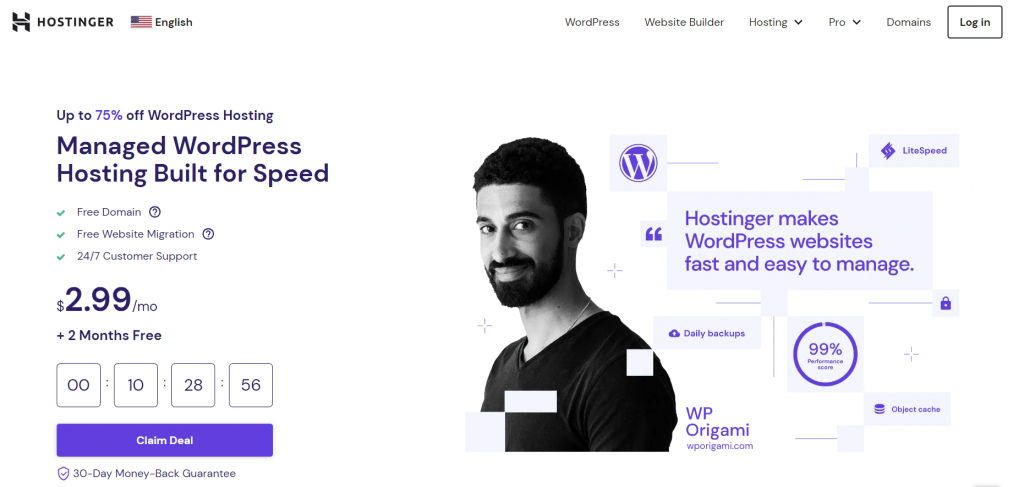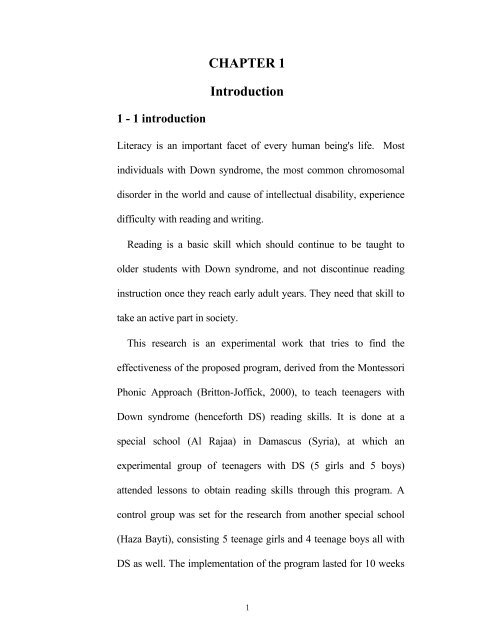Welcome to ‘The Ultimate Guide to Finding the Best Free Hosting for WordPress.’ Whether you’re launching a new blog or testing ideas without financial commitment, choosing the right hosting is crucial. This comprehensive guide explores why finding optimal free hosting matters, key factors to consider such as performance and support, and provides an in-depth review of top free hosting providers. We’ll compare their features, discuss tips for optimizing WordPress on these platforms, and conclude with insights to help you make an informed decision. Discover how to maximize your WordPress experience without breaking the bank.
Embark on a detailed exploration of this topic with wermma.com
1. Introduction
Welcome to ‘The Ultimate Guide to Finding the Best Free Hosting for WordPress.’ Whether you’re launching a new blog or testing ideas without financial commitment, choosing the right hosting is crucial. This comprehensive guide explores why finding optimal free hosting matters, key factors to consider such as performance and support, and provides an in-depth review of top free hosting providers. We’ll compare their features, discuss tips for optimizing WordPress on these platforms, and conclude with insights to help you make an informed decision. Discover how to maximize your WordPress experience without breaking the bank.
In today’s digital landscape, WordPress remains one of the most popular platforms for creating and managing websites. Its flexibility, user-friendly interface, and extensive plugin ecosystem have made it a go-to choice for beginners and seasoned developers alike. However, the success of your WordPress site heavily relies on the hosting provider you choose.
Free hosting offers a cost-effective entry point, especially for those starting with limited budgets. It allows you to experiment with WordPress functionalities and build a web presence without upfront expenses. Yet, not all free hosting services are created equal. Factors such as server uptime, page loading speed, customer support, and scalability can significantly impact your site’s performance and user experience.
This guide delves into these considerations, helping you navigate the complexities of selecting free hosting tailored to WordPress. By understanding these nuances, you can avoid common pitfalls and ensure your website operates smoothly. Whether you’re a blogger, entrepreneur, or hobbyist, optimizing your WordPress site on free hosting begins with informed decision-making.
2. Importance of finding the best free hosting for WordPress
In today’s digital landscape, WordPress remains one of the most popular platforms for creating and managing websites. Its flexibility, user-friendly interface, and extensive plugin ecosystem have made it a go-to choice for beginners and seasoned developers alike. However, the success of your WordPress site heavily relies on the hosting provider you choose.
Free hosting offers a cost-effective entry point, especially for those starting with limited budgets. It allows you to experiment with WordPress functionalities and build a web presence without upfront expenses. Yet, not all free hosting services are created equal. Factors such as server uptime, page loading speed, customer support, and scalability can significantly impact your site’s performance and user experience.
This guide delves into these considerations, helping you navigate the complexities of selecting free hosting tailored to WordPress. By understanding these nuances, you can avoid common pitfalls and ensure your website operates smoothly. Whether you’re a blogger, entrepreneur, or hobbyist, optimizing your WordPress site on free hosting begins with informed decision-making.

3. Factors to consider when choosing free hosting

When choosing free hosting for WordPress, several critical factors should guide your decision-making process. First and foremost is performance, including server uptime and page loading speed. A reliable hosting service ensures your website is accessible and loads quickly, crucial for retaining visitors and improving SEO rankings.
Support is another vital consideration. Even with free hosting, responsive customer support can help resolve issues promptly, minimizing downtime and ensuring smooth operation.
Scalability is essential for future growth. While starting small is feasible with free hosting, the ability to upgrade to paid plans or switch providers seamlessly as your website expands is valuable.
Security should not be overlooked. Free hosting services vary in their security measures, so choose one that offers robust protections against malware and cyber threats.
Features and limitations of the hosting plan, such as storage space, bandwidth, and supported technologies, should align with your website’s needs and future goals.
By evaluating these factors comprehensively, you can make an informed choice that supports your WordPress site’s performance, security, and overall success.
4. Top free hosting options for WordPress

When considering free hosting options for WordPress, several providers stand out for their features and reliability:
WordPress.com: Known for its user-friendly interface and integration with WordPress, it offers basic free plans with the option to upgrade for more features and customization.
000webhost: Offers free hosting with PHP, MySQL, cPanel, and no ads. It’s suitable for small websites and includes a website builder for easy setup.
InfinityFree: Provides unlimited disk space and bandwidth, along with MySQL databases and PHP support. It’s ideal for those needing more resources compared to basic plans.
AwardSpace: Offers free hosting with PHP, MySQL, and no ads, along with a website builder. It’s known for its reliability and ease of use.
Freehostia: Provides free hosting with generous disk space and bandwidth, supporting PHP, MySQL, and one-click installations for WordPress and other CMS platforms.
These providers vary in terms of features, limitations, and support, so consider your specific needs and growth plans when choosing the best option for your WordPress site. Each platform offers a starting point for building and testing your website without financial commitment, allowing you to scale up as your online presence grows.
5. Comparison of different free hosting providers
Comparing different free hosting providers for WordPress can help you find the best fit for your website’s needs:
WordPress.com: Offers a straightforward interface and integration with WordPress CMS. It’s user-friendly but has limitations on customization and monetization compared to self-hosted WordPress.org.
000webhost: Provides PHP, MySQL, and cPanel access without ads, suitable for small to medium-sized websites. It includes a website builder and supports one-click installations for WordPress.
InfinityFree: Stands out with unlimited disk space and bandwidth, ideal for sites needing more resources. It supports MySQL databases, PHP, and offers free SSL certificates, though it has occasional performance issues.
AwardSpace: Offers free hosting with PHP, MySQL, and no ads, making it reliable for basic websites. It includes a website builder and supports one-click installations for WordPress and other CMS platforms.
Freehostia: Provides generous disk space and bandwidth limits, supporting PHP, MySQL, and one-click installations for WordPress and other CMS platforms. It offers good performance but has occasional downtime.
Consider factors like performance, support, scalability, and features when comparing these providers. WordPress.com is best for simplicity and integration but has limitations on customization. 000webhost and AwardSpace are reliable choices for basic needs, while InfinityFree and Freehostia offer more resources and flexibility, albeit with potential performance variations. Choose based on your site’s requirements and future growth plans to ensure a positive user experience and seamless operation.
:max_bytes(150000):strip_icc()/isp.asp-edit-bba11bd375f54353b6cfcceb88f8bd49.jpg)
6. Tips for optimizing WordPress on free hosting
Optimizing WordPress on free hosting can enhance performance and user experience:
Choose a lightweight theme: Opt for themes optimized for speed and efficiency to minimize resource usage.
Use caching plugins: Plugins like WP Super Cache or W3 Total Cache can improve page load times by serving cached content to visitors.
Optimize images: Compress images before uploading using plugins like Smush or Optimole to reduce file sizes without compromising quality.
Limit plugins: Only install necessary plugins to avoid excess resource consumption and potential conflicts.
Monitor and clean up: Regularly check and optimize your database using plugins like WP-Optimize to remove unnecessary data and improve site performance.
Enable gzip compression: This reduces file sizes transferred between the server and visitors’ browsers, speeding up page load times.
Minimize external scripts: Reduce reliance on external scripts and widgets that can slow down your site.
By implementing these tips, you can maximize the performance of your WordPress site on free hosting, ensuring it remains fast, reliable, and user-friendly despite the limitations of the hosting plan.
7. Conclusion
In conclusion, selecting the best free hosting for WordPress involves balancing your website’s needs with the limitations of each provider. While free hosting offers a cost-effective way to start your online presence, it’s essential to consider factors like performance, support, scalability, and features.
WordPress.com provides a straightforward option with seamless integration but limits customization. 000webhost and AwardSpace offer reliable options with essential features and support for WordPress installations. InfinityFree and Freehostia stand out with more resources like unlimited bandwidth and generous disk space, suitable for sites needing room to grow.
Regardless of your choice, optimizing your WordPress site with lightweight themes, caching plugins, image compression, and database maintenance can significantly improve performance on free hosting. Regular monitoring and adjustments ensure your site remains responsive and efficient.
By understanding these considerations and implementing best practices, you can leverage free hosting effectively for your WordPress site while preparing for potential future growth and transitions to more robust hosting solutions as your needs evolve.

